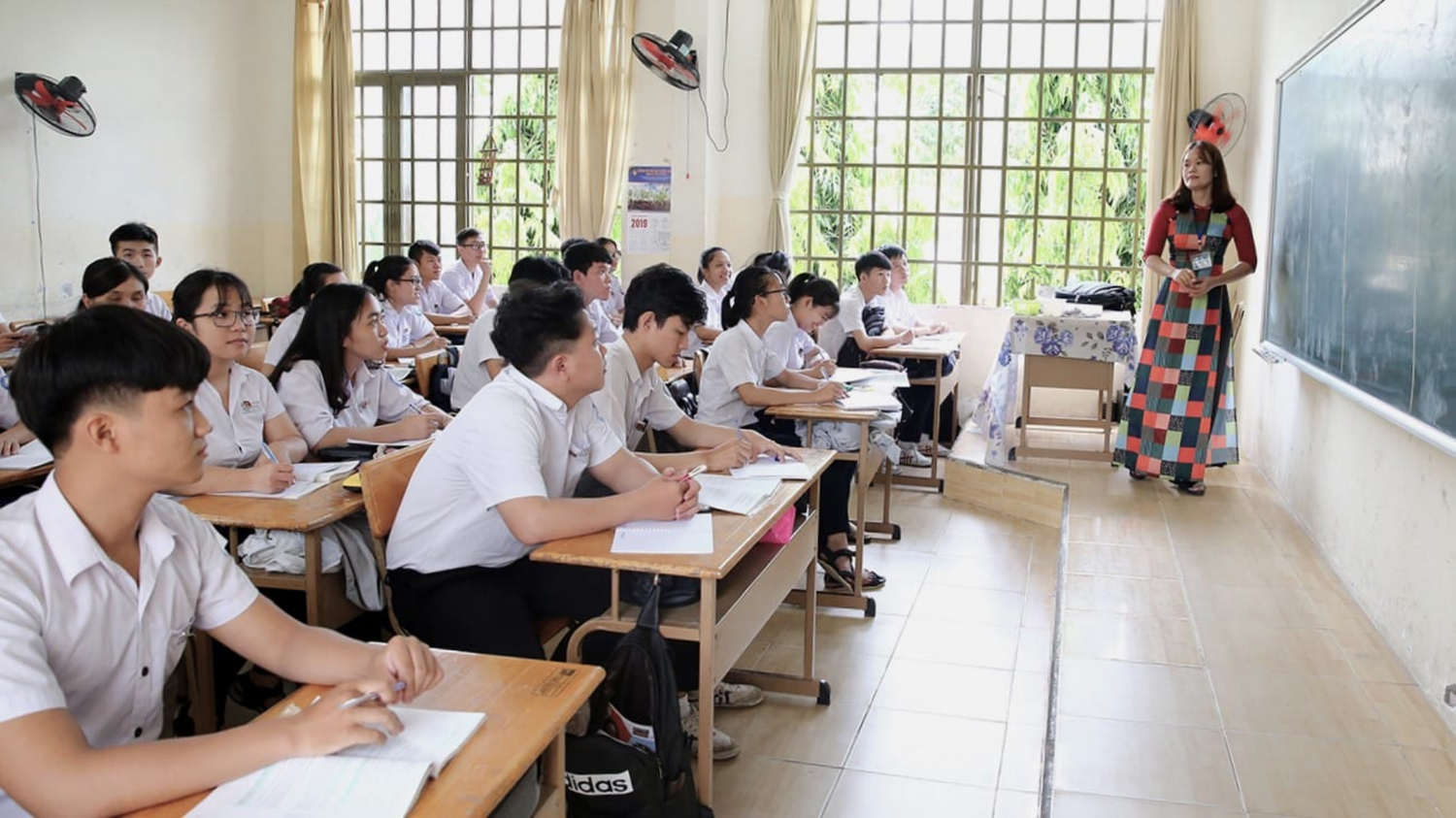Thúc Kháng wrote this article in Vietnamese and published it in Luat Khoa Magazine on February 14, 2025.
Restoring Order or Inviting Chaos?
On February 14, Circular No. 29 issued by Việt Nam’s Ministry of Education and Training officially came into effect. The day before, Hồ Tấn Minh, the spokesperson of the Hồ Chí Minh City Department of Education, told the press that this regulation would “restore the dignity of the education sector” by placing private tutoring within a stricter legal framework.
According to Minh, the previous regulation, Circular 17, had contributed to many problems that tarnished the image of Việt Nam’s education system. In reality, after-school tutoring had veered far off its intended path of supplementing learning. Many students attend extra classes out of fear of being penalized by teachers, or because those teachers deliberately under-deliver in regular courses to reserve valuable content for their paid sessions.
Circular 29 was introduced to replace Circular 17 and tighten the management of these extracurricular activities.
New Rules, Mixed Reactions
While some have welcomed the regulation as a long-overdue reform, Circular 29 has also generated significant backlash. Critics argue it creates new hardships for both teachers and parents, while its actual effectiveness remains questionable.
Some of the key provisions in Circular 29 include:
- A ban on all extra classes for primary school students, except in special cases such as gifted training, integrated curricula, or support for disadvantaged students.
- No tuition fees are allowed for extra lessons held within school premises.
- Teachers must register as businesses if they offer tutoring outside the school system.
- Public school teachers are prohibited from opening private tutoring centers.
Teachers Caught in the Crossfire
One of the most immediate consequences of Circular 29 has been the increased pressure it places on public school teachers. Previously, many schools organized their own after-school classes at reasonable fees, providing a safe and structured environment for students to reinforce their knowledge. Under the new regulation, schools are now encouraging teachers to provide these extra lessons entirely free of charge.
This new expectation comes at a time when teachers are already overworked and underpaid. As Nguyễn Thị Vân Hồng, principal of Chuong Duong Secondary School in Hà Nội, explained on national television, “Teachers already manage 19 regular periods per week, in addition to lesson planning, grading, and participating in school activities. They also supervise students outside class hours to ensure safety and engagement. Is it fair to ask them to tutor for free?”
The demand is especially galling given the government’s recent decision to freeze the public sector base wage at 2.34 million đồng per month for 2025 (as stipulated in Decree 73/2024/ND-CP), placing many teachers in an increasingly untenable financial position.
Fueling Inequality in Education
Although Circular 29 has forced many schools to halt their in-house tutoring programs, the demand for extra learning has not disappeared. Parents still want their children to receive additional instruction, especially during crucial periods like entrance exam seasons. With schools withdrawing from the market, families must now turn to private tutoring centers, where fees are often significantly higher and could rise even further in response to the increased demand.
For middle- and low-income families, this added expense represents a heavy financial burden, forcing many to cut back on household spending or reduce the number of subjects their children can receive tutoring in. The predictable result is a widening educational gap: well-off students can continue to afford top-tier private instruction, while underprivileged children risk falling even further behind.
The Business Registration Dilemma
Circular 29 also requires that any teacher offering paid tutoring outside of school must register as a formal business. However, this creates a legal dilemma for the very people it targets. Public school teachers are legally barred from owning or operating private education businesses themselves. This means that if they wish to tutor legally, their only option is to partner with an existing tutoring center and teach under contractual terms, which removes their autonomy and forces them to share revenue.
Further complicating matters, teachers must also obtain written approval from either their school principal or local education authorities to tutor legally—a step many fear will be difficult, as school leaders may be reluctant to assume the added administrative responsibility.
This bureaucratic nightmare has left many teachers scrambling to adapt. Some are seeking partnerships with existing centers, though not all centers have the capacity to absorb new staff. Others who attempt to register small businesses on their own are finding the paperwork and legal hurdles discouraging. As a result, many have turned to online tutoring as a stopgap solution, while both parents and educators quietly explore legal loopholes to continue supplemental education without overtly violating the new rules.
An Unintended Underground Market
Ultimately, while Circular 29 was intended to regulate private tutoring, its most immediate impact is the creation of a thriving and more expensive informal education market. Those with resources can still access high-quality tutoring through alternative means, while those without are left with fewer options, widening the inequality gap.
Teachers are now forced to navigate a minefield of legal and financial pressure; parents are digging deeper into their wallets to ensure their children don’t fall behind; and private tutoring centers stand to gain the most, now facing less competition from more affordable school-based programs.
This raises the central question of the entire debate: Does Circular 29 genuinely promote fairness and discipline in education, or is it merely an administrative fix that fails to address the system’s root problems?
With Việt Nam’s education system already under strain, any meaningful reform must go beyond bureaucratic mandates. It must consider the lived realities of teachers, students, and families, not just the state’s desire for the symbolism of order and discipline.

